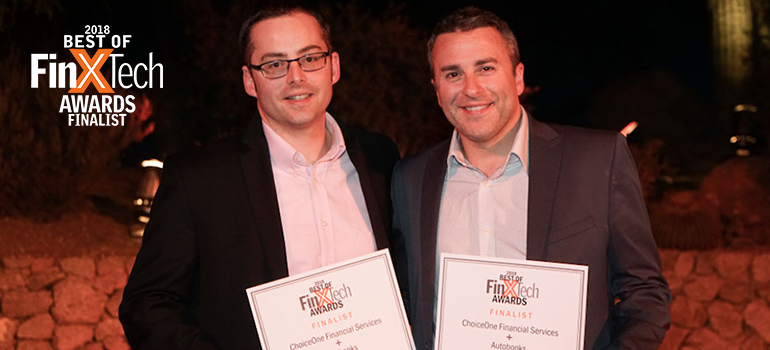
ChoiceOne and Autobooks Bring Rural Customers into the Digital Age
 Adom Greenland works with a lawn care specialist who was running his business in a way reminiscent of a bygone era. He’d leave a carbon copy invoice on the counter when he finished his work, Greenland would cut a check and some three weeks later, the small-business owner would finally be compensated for the work he had done weeks prior.
Adom Greenland works with a lawn care specialist who was running his business in a way reminiscent of a bygone era. He’d leave a carbon copy invoice on the counter when he finished his work, Greenland would cut a check and some three weeks later, the small-business owner would finally be compensated for the work he had done weeks prior.
That arrangement is one that still exists in many rural areas, but Greenland, the chief operating officer at $642 million asset ChoiceOne Bank, headquartered in Sparta, Michigan, saw an opportunity to help rural customers like his lawn care specialist usher themselves into the 21st century by partnering with Autobooks.
ChoiceOne found itself in a position that many banks in the country have found themselves in at some juncture in the last several years: recognizing the need to make a move to remain competitive with booming fintech firms popping up all over the place. Located in a largely rural area in western Michigan—Grand Rapids, with about 200,000 residents, is the largest city in its area—the bank has been a fixture for its rural community but is slowly moving into urban markets, Greenland says. Its specialties include agricultural and small business borrowers that are comfortable with antiquated practices that often aren’t driven by technology. But in an increasingly digital world, Greenland says the move was made to make both the bank and its commercial customers competitive by improving its existing core banking platform to digitize treasury services for commercial customers.
ChoiceOne chose Autobooks to digitize its small business accounting and deposit process in 2017, a journey the bank began three years ago after realizing that the technology wave rolling over the banking industry was going to be essential for the bank’s future. But identifying potential partners and wading into the due diligence process was at times frustrating, Greenland says. “Everything was either, you had to pay a quarter-million dollars and then had to hope to sell it to somebody, or it was just 10-year-old technologies that weren’t significantly better than what we already had.”
Autobooks, through an array of application programming interfaces, or APIs, essentially automates much of the bank’s existing treasury services such as invoicing, accounting and check cashing processes. The system sits on top of the bank’s existing banking platform from Jack Henry, but works with FIS and Fiserv core systems as well.
With just 12 branches in a predominantly rural market, Greenland says this has become a game changer for the bank and its customers.
“My sprinkler guy could have been doing this a long time ago, but this will accelerate the adoption of technology [by] my rural customers,” Greenland says. “It’s bringing my customers to the next century in a really safe and easy way.”
The partnership between Autobooks and ChoiceOne generates revenue for both companies through fees. It is a similar arrangement to that of Square, QuickBooks or PayPal, the competitors Greenland is trying to outmaneuver while integrating similar accounting, invoicing and payments functionalities.
So far, the partnership has been able to reduce the receivables time by about two weeks, and automates many time-consuming tasks like recurring invoicing, fee processing and automatic payments. It also cuts expenses for the bank’s customers that have been using multiple third-party providers for similar services, which has driven loyalty for the bank. ChoiceOne hasn’t generated significant revenue from the partnership—Greenland says it’s at essentially a breakeven point—but the loyalty boost has been the biggest benefit, an attribute that’s becoming increasingly important as competition for deposits rises.
And the results are visible for small businesses, like Greenland’s sprinkler technician. “For that kind of business, this thing is absolutely revolutionary.”

